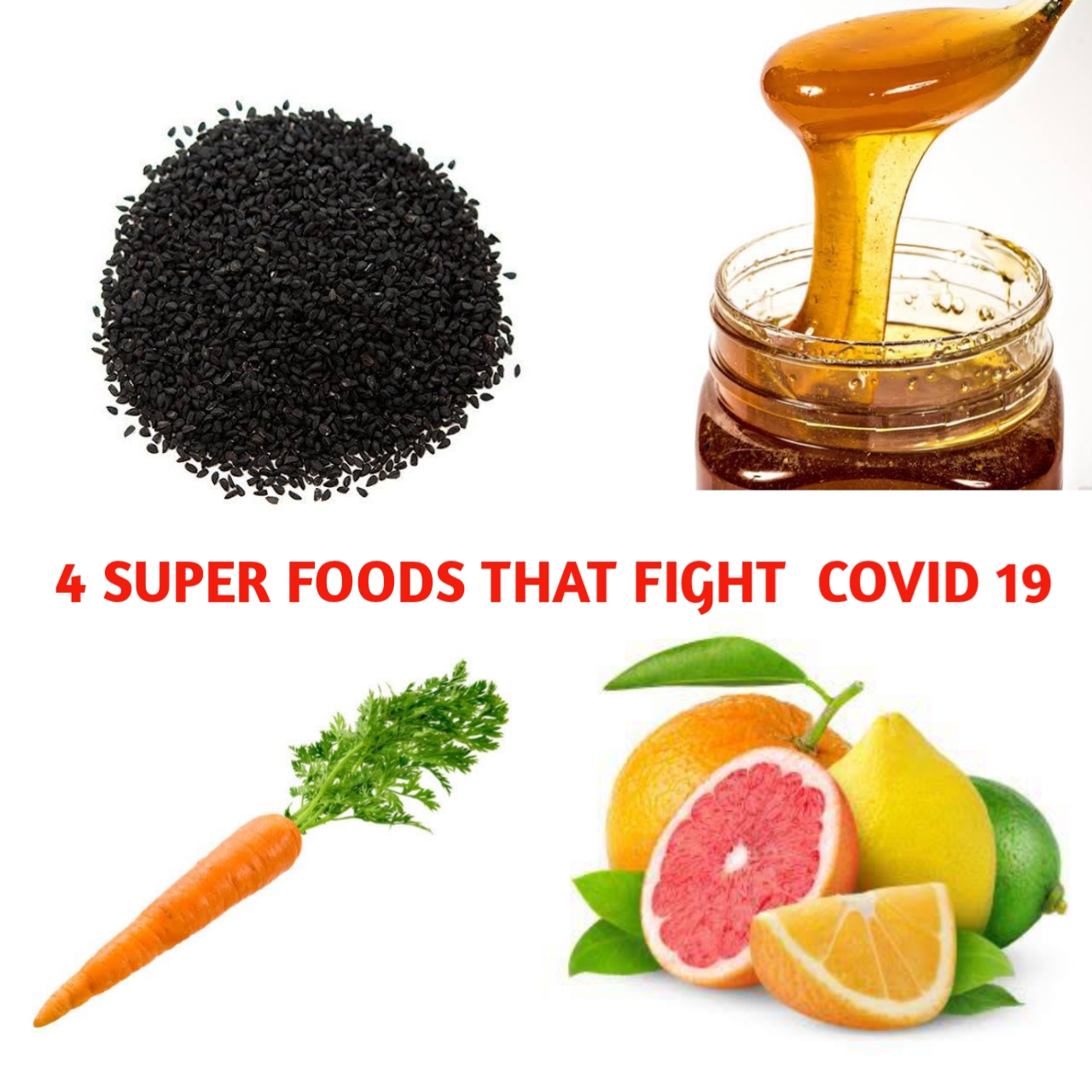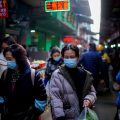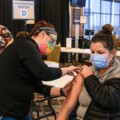Good nutrition is crucial for health, particularly in times when the immune system might need to fight back. Limited access to fresh foods may compromise opportunities to continue eating a healthy and varied diet. It can also potentially lead to increased consumption of highly processed foods, which tend to be high in fats, sugars, and salt.
The food we eat gives our bodies the “information” and materials they need to function properly. If we don’t get the right information, our metabolic processes suffer, and our health declines. If we get too much food or food that gives our bodies the wrong instructions, we can become overweight, undernourished, and at risk for the development of diseases and conditions. What we eat is central to our health. Consider that in light of Webster’s definition of medicine: “The science and art dealing with the maintenance of health and the prevention, alleviation, or cure of disease.”
Food acts as medicine–to maintain, prevent, and treat disease.
What does food do in our bodies?
The nutrients in food enable the cells in our bodies to perform their necessary functions. Nutrients are the nourishing substances in food that are essential for the growth, development, and maintenance of body functions. Essential meaning that if a nutrient is not present, aspects of function and therefore human health decline. When nutrient intake does not regularly meet the nutrient needs dictated by the cell activity, the metabolic processes slow down or even stop. According to Dr. Dariush Mozaffarian, dean of the Freidman School of Nutrition Science and Policy at Tufts University, poor diet is a leading cause of poor health. This claim is supported by a recent national report describing poor diet. Dr. Mozaffarian explained that poor metabolic health was the immunity-impairing factor underlying cardiovascular disease, Type 2 diabetes, and obesity-related cancers that left so many people nutritionally compromised and vulnerable to the lethal coronavirus.
4 Super Foods That Fight Against COVID-19
Black seed – Black seed is a plant. People have used the seed to make medicine for over 2000 years. It was even discovered in the tomb of King Tut. Historically, black seed has been used for headaches, toothache, nasal congestion, asthma, arthritis, and intestinal worms. A recent study published in the journal Chemrxiv has demonstrated how compounds from black seed inhibit COVID-19.
The study titled “Identification of Compounds from Nigella Sativa as New Potential Inhibitors of 2019 Novel Coronavirus (COVID-19): Molecular Docking Study” was conducted by Salim Bouchentouf Noureddine Missouri.
The study noted: “The spread of the global COVID-19 pandemic, the lack of specific treatment, and the urgent situation requires the use of all resources to remedy this scourge. In the present study, using molecular docking, we identify new probable inhibitors of COVID-19 by molecules from Nigella sativa L, which is a highly reputed healing herb in North African societies and both Islamic and Christian traditions. The discovery of the Mpro protease structure in COVID-19 provides a great opportunity to identify potential drug candidates for treatment. According to the research Nigellidine and α- Hederin appeared to have the best potential to act as COVID-19 treatments. Further, researches are necessary to testify medicinal use of identified and to encourage preventive use of Nigella Sativa against coronavirus infection.” Recall that black seeds were one of the remedies used by Gov Seyi Makinde who had previously tested positive for COVID-19.
Vitamin C – Also known as ascorbic acid, is a water-soluble nutrient found in some foods. In the body, it acts as an antioxidant, helping to protect cells from the damage caused by free radicals. Free radicals are compounds formed when our bodies convert the food we eat into energy. People who are deficient in vitamin C could be more at risk of SARS-CoV-2, or of developing severe COVID-19 because their immunity is impaired
- Vitamin C deficiency is associated with increased susceptibility to infections, a less robust immune response, poor wound healing, and an increased risk of pneumonia
- Research has suggested up to 7% of the U.S. population may be deficient in vitamin C. People with certain conditions, such as cancer, diabetes, inflammatory conditions, immunosuppression, or who smoke are more likely to be deficient
- Fruit and vegetables provide the best source of vitamin C. Supplementation should be considered if vitamin C requirements are not being met through a person’s diet
- Vitamin C is an antioxidant that is important for the production of collagen and carnitine and plays a crucial role in our immune response.
Why is vitamin C important?
Humans, unlike most animals, cannot make vitamin C, so we must obtain it from our diet.
It is vital for many different processes within our bodies. Vitamin C has the following key activities:
- It is a highly efficient antioxidant. Antioxidants protect important biomolecules in our body (such as carbohydrates, lipids, proteins, and genetic material) from being broken down by oxidants, which are generated during normal cell metabolism or acquired from environmental exposure, such as air pollution or cigarette smoke
- It is vital for our immune response. Research has shown certain cells in our immune system, such as phagocytes and T-cells, accumulate vitamin C and rely on the vitamin to perform their task. A deficiency in vitamin C means we have less resistance against certain pathogens
- It is a cofactor for many enzymes, most notably, those involved with collagen production (the protein that holds our body together, found in our bones, muscles, skin, tendons, and ligaments) and carnitine (the molecule that transports fatty acids into mitochondria to generate metabolic energy)
- It is involved in the production of hormones, such as norepinephrine and vasopressin which have a key role in how our cardiovascular system responds to infection
- Other roles include regulating how certain genes express themselves, iron absorption, and many others.
What evidence is there to support taking vitamin C for COVID-19?
There have been hundreds of studies investigating vitamin C, many of which have conflicting results. One of the biggest problems with vitamin C studies is that most do not measure vitamin C concentrations before or after supplementation. Supplementation is unlikely to show an effect in people whose vitamin C levels are already high.
COVID-19 is a new disease, and we are still learning about it. But several studies on other infections or conditions suggest it may be beneficial in certain groups of people, particularly those already deficient in vitamin C who develop COVID-19. Currently, at least two trials are underway specifically investigating the use of vitamin C to treat severe COVID-19, one in New York and one in China. Foods rich in vitamin C include broccoli, cantaloupe, cauliflower, kale, kiwi, orange juice, papaya, red, green, or yellow pepper, sweet potato, strawberries, and tomatoes.
Honey – Honey is a sweet, viscous food substance made by honey bees and some related insects. Bees produce honey from the sugary secretions of plants or from secretions of other insects, by regurgitation, enzymatic activity, and water evaporation. Bees store honey in wax structures called honeycombs. Many studies have demonstrated the broad spectrum antimicrobial effect of honey as an antibacterial, antifungal, antiviral, and antimycobacterial.
The National Institute for Health and Care Excellence (NICE) and the Public Health England (PHE) guidelines recommended honey as a first line of treatment for acute cough caused by upper respiratory tract infection which is currently a cornerstone symptom of COVID-19 infectious disease.
According to a current study sponsored by Misr University for Science and Technology, Natural honey has been demonstrated as a potent antimicrobial in many research investigations and has been considered a good alternative for antiviral drugs for the treatment of some viral infections. It asserts that natural honey should no longer be used as an “alternative” and deserves to gain more attention from scientists and researchers. The aim of the trial is to study the efficacy of natural honey in the treatment of patients infected with COVID-19 in comparison with current standard care.
Carrots – Carrot is a root vegetable, usually orange in colour, though purple, black, red, white, and yellow cultivars exist. They are a domesticated form of the wild carrot, Daucus carota, native to Europe and Southwestern Asia. The plant probably originated in Persia and was originally cultivated for its leaves and seeds.
Carrot is a rich source of Beta Carotene which gets converted to vitamin A, which is essential for a strong immune system. It works by helping antibodies respond to toxins and foreign substances. This can help your immune system and decrease inflammatory symptoms. Inflammation is often an immune response to infections. It can cause flu or cold symptoms like a runny nose, coughs, and body aches. According to a study published in CHEST, the official journal of the American College of Chest Physicians Vitamin E and beta-carotene affect various measures of immune function and accordingly might influence the predisposition of humans to infections.







